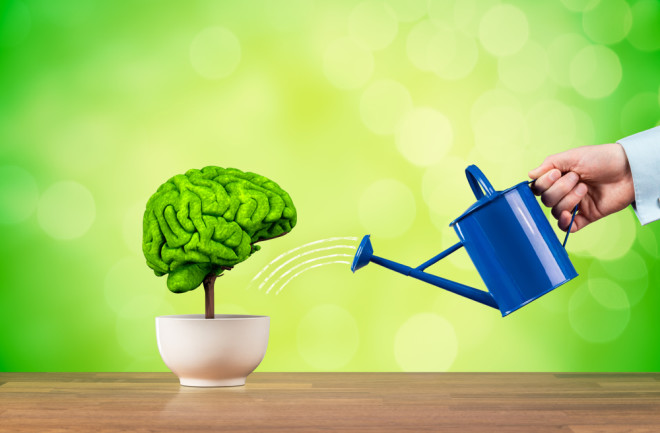Are you having trouble remembering things improving your memory Have you tried every improving your memory trick in the book only to come up empty-handed? Then don’t be concerned. You’ve arrived to the right location. We’ll go through the most effective and scientifically proven memory approach in this post to help you improving your memory.
The improving your memory in our lives cannot be overstated. Our memories shape who we are in various ways. They play a significant role in our internal biographies, stories, and what we have accomplished in our lives.
Our recollections reveal who we are related to. In a nutshell, our memories are what distinguishes us as human beings.
So, if somebody were to be granted a wish, it would be to inmproving your memory.

Top 5 Methods for Improving Your Memory
- Method of ‘Loci’
- Mindfulness
- Spaced Repetition
- Use acronyms or mnemonics
- Last but not least. Sleep better
MEDITATE TO IMPROVE YOUR WORKING MEMORY
New knowledge is briefly improve your memory, which is similar to the brain’s notepad. When you learn someone’s name or the address of a place you’re going to, you store the information in improving your memory until you’re ready to use it. If they’re no longer helpful, you get rid of them completely. If they are, you will commit them to long-term memory, where they will be strengthened and recalled in the future.
We use working memory on a daily basis, and it makes our lives a lot easier when it’s strong. The greatest number of items we can keep in our working memory is roughly seven for most adults, but if you’re not using it to its full potential, meditation is one option.
Memories Can Evolve
You’re probably right that their recollection is faulty, but yours is probably wrong, too, if you’ve ever reminisced with a family member or an old acquaintance and you both swear something happened differently.
McGill University researchers revealed that your brain has to reconstruct a improving your memory every time you recall it in order to store it again. Mistakes might be made throughout this process, causing your memories to shift over time. As a result, when you think back on an experience that happened yesterday, your memory of it may differ significantly.
LOOKING AFTER YOUR BRAIN
It’s critical to evaluate your sleeping patterns when looking for techniques to improving your memory. Sleep appears to play a crucial role in memory, according to a slew of studies. New connections emerge between your brain cells when you sleep, which aid memory and learning. This suggests that sleep not only increases our ability to recall information, but it also improving your memory to connect new and old information. It has even been discovered that getting 8 hours of sleep every night throughout exams produces better results than staying up all night revising.
Improve your focus and concentration
While it might seem obvious, we absorb information significantly better when we are focused. When we give our full attention to a task, we retain the information associated with that process much better than if we are distracted. If you are trying to read a book while watching TV at the same time, you don’t do either of those activities justice. You’re unlikely to recall key details from either the TV show or the plot of the book you’re reading, and there’s also the possibility you mix the two and cross the wires, creating something entirely new from a blend of both.
When you are trying to remember something, whether it’s for learning or simply for leisure, avoid distractions as best you can. Put your phone away, turn off the TV and find a quiet space where you dedicate your full attention to concentrating on the task at hand. This should improve your memory and the information you retain, with results noticeable quite quickly.
Spaced Repetition
Studying can be tedious at times and consume a significant amount of time. There are only 24 hours in a day, after all. You can only learn so much in such a short amount of time.
To fight this, you’ll need a method that allows you to study for less time while retaining more material.
How is that feasible, though? Spacing or spaced repetition is the solution.
The ‘Spacing effect’ is a imroving your memory process that is aided by spaced repetition. This effect argues that spacing out your learning over time helps you learn better.
So, what’s the best way to put spaced repetition into practise?
In his book How We Learn, Benedict Carey devised a schedule for practising spaced repetition.
Method of ‘Loci’
Studying can be tedious at times and consume a significant amount of time. There are only 24 hours in a day, after all. You can only learn so much in such a short amount of time.
To fight this, you’ll need a method that allows you to study for less time while retaining more material.
How is that feasible, though? Spacing or spaced repetition is the solution.
The ‘Spacing effect’ is a memory process that is aided by spaced repetition. This effect argues that spacing out your learning over time helps you learn better.
So, what’s the best way to put spaced repetition into practise?
In his book How We Learn, Benedict Carey devised a schedule for practising spaced repetition.
FINAL THOUGHT
So there you have it: 5 improving your memory-improvement strategies. Some of these methods are more effective for some people than for others, but giving them all a shot isn’t a bad idea! When it comes to figuring out which strategies are ideal for you, it’s generally a case of trial and error. To summarise, there are five strategies for improving your memory:
